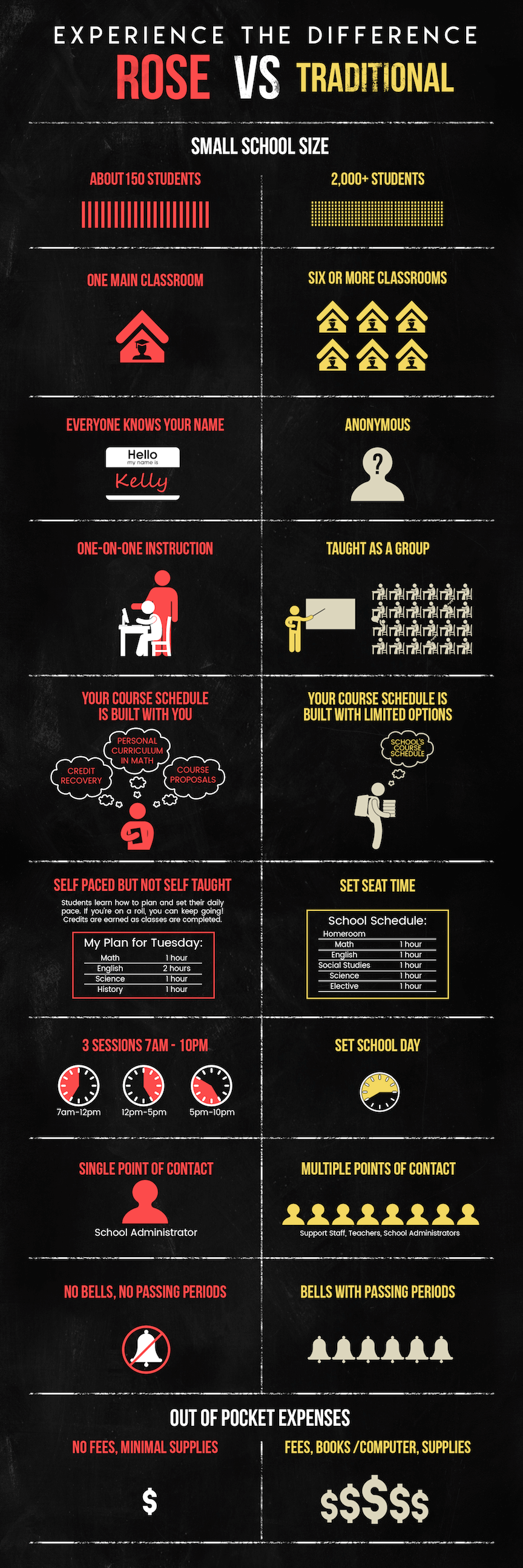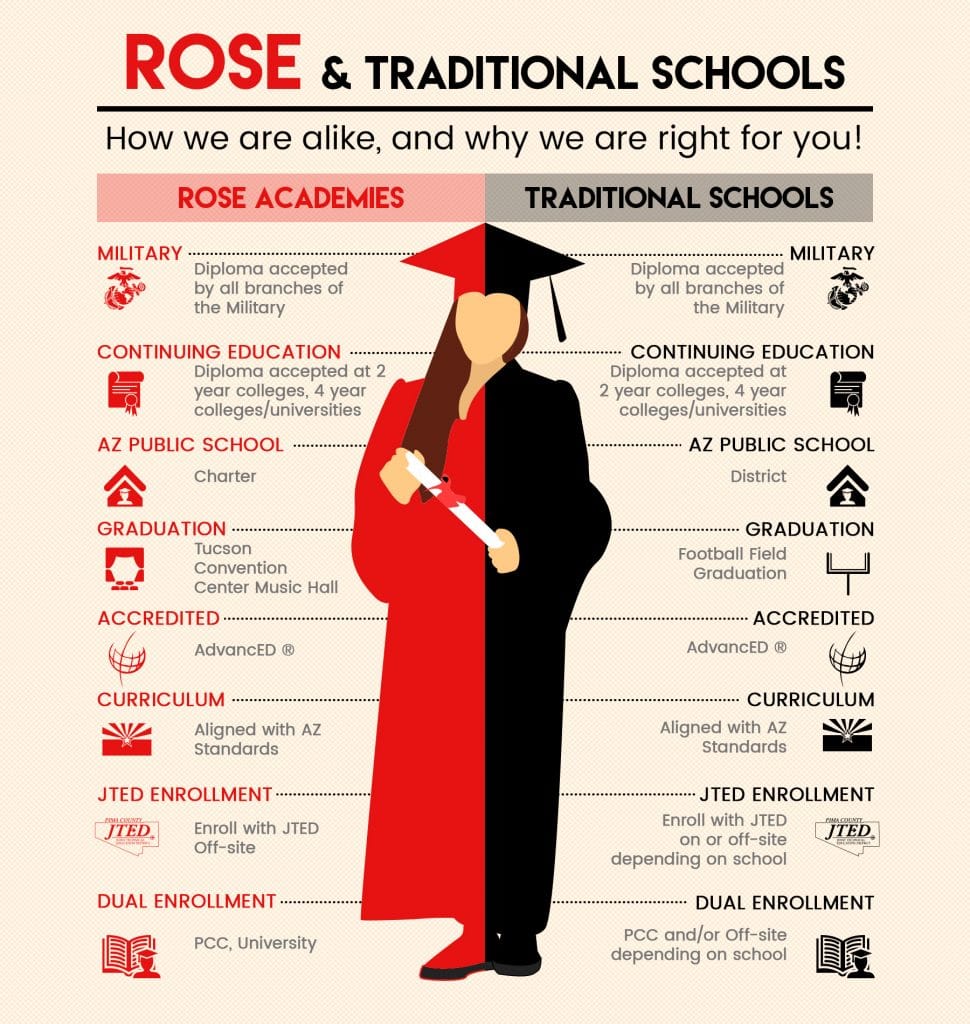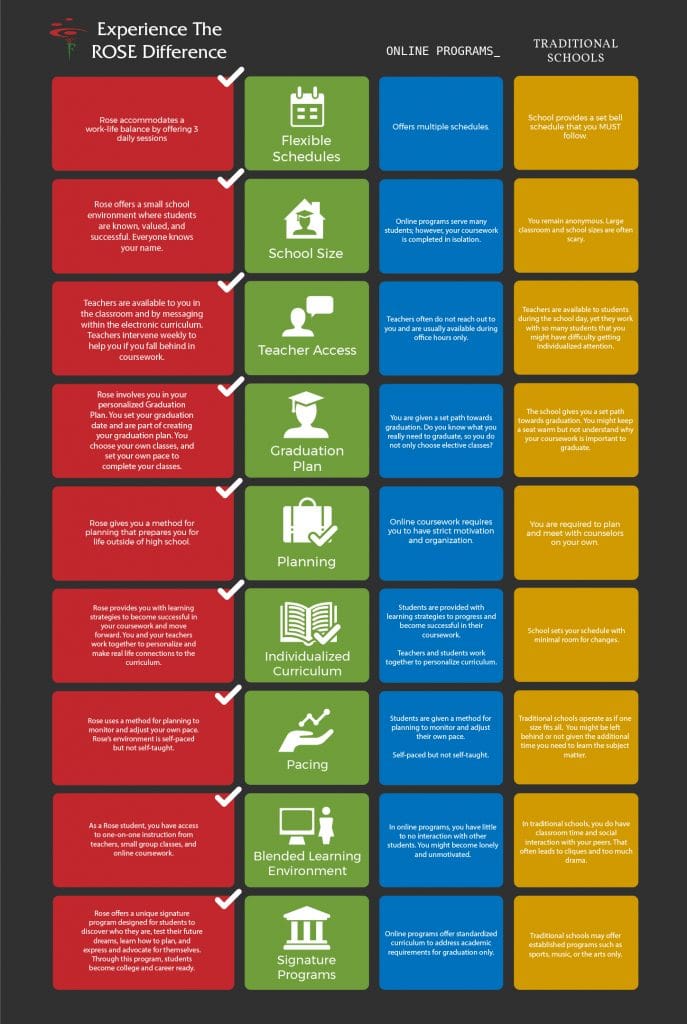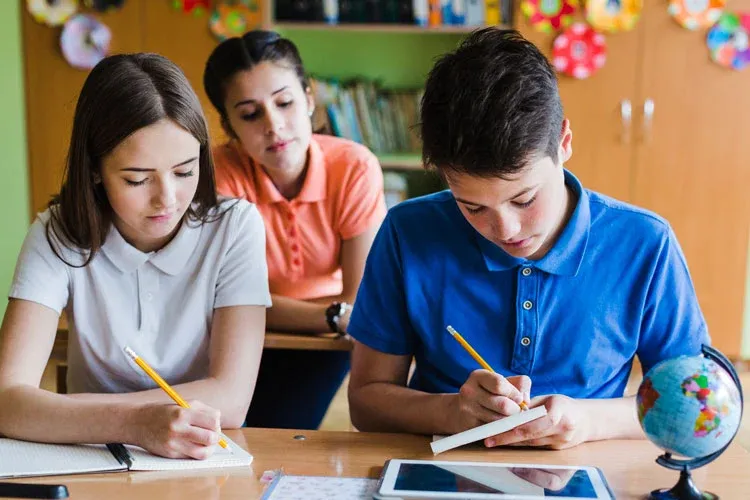Author: csadmin
How Goal Setting & Planning can Change your Future
High school, for many, can be an exciting yet daunting chapter in life. It’s a phase where you have the chance to stand at the crossroads of your goals and dreams, armed with potential and aspirations. Thankfully, as you embark on this journey, there’s a compass you can wield to navigate with confidence: the Rose Academy’s Shu-Ha-Ri-DŌ program.
In this blog, we’ll explore how the invaluable skills of goal setting and planning can be the guiding stars in your high school journey, drawing inspiration from the “Art of Learning”.
The Art of Learning: A Framework for Success
Before we delve into goal setting and planning, let’s introduce the concept of “Shu-Ha-Ri-DŌ.” This unique program, rooted in traditional Japanese martial arts, offers a distinctive approach to personal development. It’s designed to help you discover your true self, learn how to advocate for yourself, and dream big about your future.
Shu-Ha-Ri-DO unfolds in four skill-building and character-development phases:
1. SHU Phase: Setting the Foundation
2. HA Phase: Expanding Your Horizons
3. RI Phase: Becoming a Leader
4. DŌ Phase: Crafting Your Character
Now that we’ve explored the framework let’s dive into how setting goals and planning can change your future:
1. Clarity in Your Aspirations
Goal setting forces you to think about what you truly want in life. By setting clear goals, you gain a sense of direction and purpose. The SHU Phase of Shu-Ha-Ri-DŌ guides you in setting academic goals, but this skill is transferable to all aspects of life. Knowing where you want to go is the first step toward getting there.
2. Motivation and Focus
When you have a goal in mind, it becomes your driving force. It’s what gets you out of bed in the morning, eager to tackle the day. With the HA Phase’s “HA Kata,” you learn how to organize your thoughts and prioritize your actions, making your journey more efficient and effective.
3. Overcoming Challenges
High school, like life, is filled with challenges. But with proper planning, you can turn obstacles into opportunities. The RI Phase in Shu-Ha-Ri-DŌ teaches you how to become a mentor and support your peers, a skill that helps you navigate the challenges of high school and beyond.
4. Building Your Future
The ultimate goal of high school is to prepare for the future. The DŌ Phase emphasizes lifelong character development, ensuring that you are not just academically prepared but also equipped with the qualities that will help you grow into a more well rounded human.
Measuring Progress
Goal setting and planning aren’t just about the end result but the journey. Throughout the Shu-Ha-Ri-DŌ program, you’ll earn high school credit and see tangible progress. This is a reminder that your efforts are paying off, and you’re moving closer to your goal of graduating high school.
Goal setting and planning are not just skills for high school but tools that can change your future. The Rose Academy Shu-Ha-Ri-DŌ program provides a structured and engaging way to develop these skills while guiding you on a journey of self-discovery and personal growth. We invite you to learn more, and even enroll today, with a visit to our website at go2rose.com.
Importance of Grit & Self-Advocacy for High School Students
High school can be challenging in a student’s life, demanding resilience, confidence, and self-assertion. It’s a time when students are expected to juggle academic responsibilities, extracurricular activities, and social pressures on top of their everyday lives. High school students need more than just textbook knowledge to navigate these challenges successfully and prepare for the future. They need essential life skills to ensure their opportunities are limitless. In this blog, we’ll explore why these skills are crucial for high school students, including how they are integrated into Rose Academy’s Shu-Ha-Ri-DŌ program, and how they can benefit them throughout their lives.
Grit: The Secret Ingredient to Success
Grit, a term popularized by psychologist Angela Duckworth, refers to the combination of passion and perseverance in the pursuit of long-term goals. It’s the ability to stay committed and resilient in the face of adversity, setbacks, and distractions. High school students often face a myriad of obstacles, from difficult classes and heavy workloads, to personal challenges and social pressures. Developing grit during this period can make all the difference in their academic and personal journeys.
1. Academic Success
Grit is a fundamental driver of academic achievement. High school coursework can be demanding, and students may encounter subjects that are particularly challenging for them. In such situations, having grit means refusing to give up, seeking help when needed, and maintaining a growth mindset. Rose Academy’s signature Shu-Ha-Ri-DŌ program incorporates economy simulations, group work situations, and career readiness opportunities to foster grit and practice resilience in the face of challenging circumstances.
2. College and Career Readiness
Beyond high school, grit continues to play a significant role in our students’ lives. College and the workplace both require individuals to set and pursue long-term goals. Fortitude helps students not only gain admission to their preferred colleges or workplaces, but also to succeed once they get there. In their careers, individuals with grit are more likely to face setbacks as opportunities for growth, rather than barriers to their happiness, leading to greater success and job satisfaction. The Shu-Ha-Ri-DŌ program helps students explore career readiness and leadership that align with this concept.
Self-Advocacy: Finding Your Voice
Self-advocacy is the ability to assert one’s needs, express opinions, and seek help when necessary. It’s about taking charge of one’s own education and life, actively participating in decision-making processes, and communicating effectively. High school is the ideal time for students to hone their self-advocacy skills as they transition into greater independence and responsibility.
1. Effective Communication
Self-advocacy is rooted in effective communication. High school students who can clearly express their thoughts, needs, and concerns are more likely to succeed academically and in their personal lives. These communication skills are valuable in classrooms, extracurricular activities, and future job interviews. The Rose Academy’s Shu-Ha-Ri-DŌ program integrates guided presentation and communication exercises to enhance students’ communication skills for school, life, and in the workplace.
3. Building Confidence
Self-advocacy is not just about speaking up; it’s also about believing in oneself. When students learn to advocate for their needs and preferences, they build confidence in their abilities. This self-assurance carries over into all aspects of life, from academics to personal relationships. In the Shu-Ha-Ri-DŌ program, unique leadership activities and mentorship opportunities contribute to building students’ confidence.
The Lifelong Impact of Grit and Self-Advocacy
The benefits of grit and self-advocacy extend far beyond high school. These skills are invaluable throughout a person’s life journey and contribute to college, career, and personal success.
At the Rose Academies charter high schools, we recognize the importance of grit and self-advocacy and actively work with students to help them develop these skills. Our signature Shu-Ha-Ri-DŌ program provides guidance, support, and opportunities for growth within the context of a high school education, equipping the next generation with the tools they need to thrive. We invite you to learn more about the Rose Academies with a visit to our website.
Prep for Higher Education at Rose Academies’ Charter School
Education is often hailed as the cornerstone of success, and in today’s fast-paced world, a solid educational foundation has become more critical than ever. The Rose Academy charter schools offer students a transformative learning experience that prepares them for academic success, the challenges of higher education, and beyond.
A Holistic Approach to Learning
The Rose Academies operate uniquely committed to providing a holistic education beyond textbooks and exams. Our school focuses on fostering critical thinking, problem-solving, and creativity among its students. By encouraging them to explore various subjects, engage in hands-on activities, and collaborate on projects, Rose helps to equip students with essential skills that will serve as the foundation for their future endeavors.
Personalized Learning for Every Student
One size does not fit all in education, instead, the Rose Academies tailor education to the individual needs of each student. Through personalized learning plans, students are empowered to progress at their own pace, delve deeper into subjects of interest, and receive targeted support in areas where they need it the most.
A Bridge to Higher Education
One of the most notable aspects of the Rose Academies is our commitment to acting as a bridge between secondary education and higher education. The school’s college and career readiness signature program , Shu-Ha_Ri-Do, is designed to help students navigate the complex landscape of university admissions, scholarships, and career exploration. Through workshops, college fairs, and individualized guidance, students are empowered to make informed decisions about their future.
Empowering Future Scholars
By offering a holistic, personalized, and supportive learning experience, the Rose Academies equip students with the tools they need not only for success in higher education but for fulfilling and impactful lives. Learn more about what makes a Rose Academy education unique by continuing to explore our website at go2rose.com.
Limitations of a One-Size-Fits-All Approach to Education
Education is a transformative journey that should empower students to reach their full potential. However, a traditional, one-size-fits-all approach or standardized education system often fails to address students’ diverse learning needs, interests, and circumstances. By embracing alternative educational models and working to address the disadvantages of one-size-fits-all education styles, we can unlock opportunities for students who may have been left behind.
The “one size fits all” teaching approach often comes with disadvantages as it assumes every student learns the same way. Every student has their own needs and developing curriculums around those needs helps in improving education and academic outcomes.
Diverse Learning Needs:
- Every student has unique learning styles, strengths, and challenges. However, traditional high schools often follow a rigid curriculum that is not designed to cater to the individual. Alternative schools provide more flexible and personalized learning approaches, allowing students to explore different learning methods and a curriculum tailored to their needs.
Credit Recovery Programs:
- For students who face academic setbacks or circumstances that hinder their progress, credit recovery programs offer a lifeline. Traditional high schools may struggle to accommodate these students within their existing structures, leading to disengagement and a potential loss of future opportunities. Credit recovery programs provide targeted support, allowing students to make up missed credits and graduate on time. These programs offer a second chance for struggling students to reclaim their education and regain confidence in their abilities.
Alternative High Schools:
- Traditional educational institutions may not suit every student’s needs, leading to disengagement and higher dropout rates. Alternative high schools, such as career-focused academies or online learning platforms, offer alternative pathways to success. These schools provide specialized curriculums, mentoring programs, and vocational training, enabling students to develop skills aligned with their passions and career aspirations.
Individualized Attention:
- The one-size-fits-all approach often hampers the ability of educators to provide individualized attention to students. Alternative educational models, on the other hand, prioritize smaller class sizes, fostering a supportive and collaborative environment. This personalized attention allows educators to address the specific needs and challenges of each student.
Appealing to Different Learning Styles:
- At The Rose Academies, we recognize that every student learns differently. Some students thrive in a visual learning environment, while others may excel through auditory, kinesthetic, or reading/writing methods. Our personalized education system caters to these diverse learning styles, ensuring that each student can engage with and learn from the material in the way that suits them best.
Developing a Differentiated Learning Classroom:
- Our educators are trained to identify and address the various strengths, challenges, and interests of their students, crafting lessons that are adaptable and responsive and building a differentiated learning environment catering to the unique needs of each student. By utilizing flexible grouping, ongoing assessments, and diverse instructional techniques, we ensure that all students are challenged and supported appropriately.
A one-size-fits-all approach to education limits the potential for student success and fails to address individual learning needs and circumstances. Alternative paths, including credit recovery programs, alternative high schools, and personalized learning models, offer a solution to these limitations. At the Rose Academies, we have over 25 years of experience in embracing flexibility and personalization with an educational system that empowers every student to thrive and become lifelong learners. To learn more and see if a Rose education is right for you, we invite you to continue exploring our website.
Pros and Cons of Charter Schools: Should Your Child Attend?
Every parent wants their child to succeed academically, but choosing the right learning environment can feel overwhelming. In this article, we’ll explore the pros and cons of charter schools so you can make an informed decision about your child’s education.
We’ll discuss what sets charter schools apart—from their flexibility and smaller class sizes to challenges like funding limitations. With insights from Rose Academies, you’ll gain a better understanding of whether a charter school aligns with your child’s learning style and educational needs.
To learn more about the unique benefits of charter schools, contact Rose Academies today. We’ll discuss your child’s needs and learning preferences to determine whether our Arizona charter schools would be the best for their future.

Pros of Attending Charter School
Charter schools break away from the one-size-fits-all learning model of traditional public schools. With more flexibility, smaller class sizes, and a focus on individualized learning, they help students feel supported and engaged:
Enhanced Flexibility
Unlike traditional public schools, charter schools have the freedom to design their curriculum to better meet students’ needs. Instead of rigid, state-mandated programs, many charter schools offer innovative learning experiences, hands-on projects, and real-world applications. Whether your child thrives in STEM programs, creative arts, or career-focused pathways, charter schools provide a learning structure tailored to their strengths.
Smaller Class Sizes for Personalized Learning
In a crowded classroom, students may struggle to get the attention they need. Charter schools typically have smaller class sizes, allowing teachers to connect with students on a more personal level. This individualized attention helps students ask questions, stay engaged, and build confidence in their abilities.
Higher Academic Standards
Charter schools operate under performance-based contracts, so they must meet strict academic benchmarks. Many charter schools hold students to high academic standards, providing a challenging and enriching educational experience that fosters critical thinking and problem-solving skills.
Strong Community & Parental Involvement
Charter schools encourage parental involvement in decision-making, school events, and academic progress. If you value your involvement in your child’s education—through volunteering, attending school meetings, or having a voice in school policies—a charter school may be the right choice for your family.
Alternative Education for Different Learning Needs
Not every student thrives in a traditional public school setting. Many charter schools cater to unique learning needs with credit recovery programs, individualized learning plans, and specialized tracks in fields like science, arts, or vocational training. If your child benefits from a personalized learning approach, a charter school could be the perfect fit.

Cons of Attending Charter School
While charter schools offer many benefits, they aren’t the right choice for every family. It’s important to consider the limitations of charter school before making a decision for your child.
Variability in Quality
Charter schools operate independently, so the quality of education, teacher experience, and school culture may vary widely from one school to another. While some charter schools offer strong academic programs and supportive environments, others may struggle to meet expectations. It’s important to research individual schools to ensure they align with your child’s educational needs and future goals.
Limited Accessibility
Unlike traditional public schools, which guarantee enrollment based on your location, charter schools have limited seats. Some use a lottery system for admissions, so not every student is guaranteed placement. If demand is high, long waitlists can pose a challenge for students who need immediate placement.
Financial Limitations
Although charter schools receive public funding, they often operate on smaller budgets than traditional public schools. This can result in fewer extracurricular activities, limited special education services, or older facilities. While many charter schools in Arizona use their resources effectively, it’s best to ensure the school offers the programs and support your child needs to succeed.
Teacher Turnover
Some charter schools experience higher teacher turnover than traditional public schools due to salary structures, job demands, or administrative policies. For students who thrive on consistency, frequent staff changes can be disruptive. Researching a school’s teacher retention rate can provide insight into its faculty stability.
Potential Lack of Diversity
Student demographics at charter schools don’t always reflect the diversity of local communities. Some schools naturally attract students with specific academic interests or backgrounds, which may result in less cultural and social diversity. If exposure to a wide range of perspectives is important for your family, researching a school’s student demographics can ensure an inclusive environment.

How to Choose the Right Charter School
Every charter school has its own unique strengths, culture, and academic approach, so it’s important to evaluate your options to ensure a positive experience for your child.
Here are some important factors to consider when choosing a charter school:
- Academic Performance & Curriculum: Review test scores, graduation rates, and college acceptance rates. Does the school’s curriculum support your child’s learning style and future aspirations?
- Class Sizes & Student Support: Smaller class sizes typically mean more personalized attention. Ask about teacher-to-student ratios, tutoring options, and counseling services.
- School Culture: Visit the school and talk to teachers and parents to get a feel for the environment. Does it seem like a place where your child will feel welcomed and supported?
- Extracurricular Activities: Does the school offer sports, arts, clubs, or other programs aligned with your child’s interests? A well-rounded experience can be just as important as academics.
- Parental Involvement: Some charter schools encourage active parental participation. If this matters to you, ask about opportunities to engage in school events, committees, or decision-making.
- School Policies & Discipline Approach: Review policies regarding attendance, dress codes, behavior expectations, and discipline to ensure they align with your family’s values.
- Teacher Stability & Experience: High turnover rates can affect student learning and school culture. Check the school’s teacher retention rate and support systems for educators.
- Accessibility & Transportation: Consider location, commute times, and whether the school offers transportation options that fit your family’s schedule.
- Accountability & Accreditation: Charter schools must meet performance goals outlined in their contracts. Confirm whether the school meets academic benchmarks and is accredited by a recognized organization.
Learn More About How Your Child Can Thrive at Rose Academies
At Rose Academies, we believe every student deserves an education that meets their unique needs and helps them reach their full potential. With a supportive community, smaller class sizes, and flexible learning options, we create an environment where students don’t just learn—they thrive.
If you’re wondering whether a charter school is the right choice for your child, we’re here to help. Contact Rose Academies today to learn more about our schools and see how we can support your child’s success!
Benefits of Alternative High Schools & Who They’re Right For
Not every student thrives in the traditional high school system. For some, academic challenges, behavioral hurdles, or a lack of support can make it difficult to succeed. For others, the standard structure of classes and rigid schedules simply doesn’t match their pace, interests, or goals. Whether a student is looking for a second chance or a faster track, alternative high schools offer a unique and effective path to educational success.
At Rose Academies, we specialize in helping students who don’t fit the traditional mold — and we’ve seen firsthand how a more flexible, student-centered approach can change lives. Below, we explore the many benefits of our alternative high schools in Tucson and why they may be the right choice for a variety of learners.
1. Personalized Learning
One significant difference between traditional schools and those with an alternative approach is personalized learning. Unlike conventional schools with large class sizes, alternative schools offer smaller student-teacher ratios, allowing educators to create individualized lesson plans based on each student’s strengths, weaknesses, and learning styles. This personalized approach helps students receive the attention and support they need to overcome academic challenges and unlock their full potential.
At Rose Academies, our curriculum is self-paced but never self-taught — students move through material on their own time, with teachers who are always present to lend a helping hand.
2. Flexible Curriculum and Scheduling
Scheduling in high school doesn’t need to be one-size-fits-all. Many students would benefit from having more say in their daily and weekly schedules. Structured class times, lengthy passing periods, and fixed lunch periods may work for some, but they often aren’t the most effective use of a student’s day.
Alternative high schools often offer a more flexible curriculum that caters to diverse needs. These schools can customize programs to include vocational training, life skills development, project-based learning, and independent study. This flexibility allows students to pursue their interests, balance responsibilities outside of school, and move at a pace that’s right for them, whether that means catching up or getting ahead.
3. Supportive Environment
For many students, especially those who are at-risk, a supportive environment is essential to academic success. Alternative high schools prioritize creating a nurturing and inclusive atmosphere where students feel safe, respected, and valued. The dedicated staff works closely with students to provide mentoring, guidance, and emotional support beyond what a traditional school often offers.
By nurturing strong relationships between students and educators, these schools foster a community where students feel empowered to take risks, build confidence, and reconnect with their love of learning.
4. Individualized Counseling and Guidance
Another key benefit of alternative high schools is access to specialized counseling services tailored to students’ unique needs. These may include academic counseling, career guidance, and mental health support. By addressing the personal challenges that impact learning, alternative schools help students develop coping strategies, build resilience, and regain control of their educational journey.
5. Real-World Learning and Life Skills
Beyond the textbooks and lectures, alternative schools place a strong emphasis on real-world experience. Whether it’s through community service, internships, or hands-on vocational training, students have opportunities to apply what they’ve learned in meaningful ways. These experiences not only deepen understanding but also teach critical life skills like communication, collaboration, time management, and problem-solving.
At Rose Academies, we partner with local businesses, colleges, and mentors to give students access to opportunities that enhance their education and prepare them for life after graduation.
6. Fostering Independence and Self-Motivation
The traditional high school model often emphasizes structure and standardized achievement — but it’s not always geared toward fostering independence. Alternative schools give students more autonomy in their learning, encouraging them to take ownership of their education and develop strong internal motivation.
Whether it’s choosing what to work on, how to organize their day, or setting their own learning goals, students gain the tools to become proactive, self-directed learners — a skill that benefits them long after high school.
7. Encouraging Creativity and Critical Thinking
By valuing diverse perspectives and innovative approaches to learning, alternative schools promote creativity and critical thinking. Many offer interdisciplinary studies and project-based challenges that push students to question assumptions, think outside the box, and explore new ideas. This environment fosters curiosity and a passion for learning — qualities that can be overlooked in traditional systems focused on testing and rigid benchmarks.
8. Accelerated Graduation Options
Alternative high schools don’t just help students catch up — they also help them move forward. For gifted students, highly motivated learners, or those with personal goals like starting a business or heading to college early, the ability to accelerate is a major benefit.
With self-paced learning and the ability to focus on essential credits, students at Rose Academies can earn their diploma ahead of schedule, opening the door to future plans without delay.
Conclusion: One School, Many Paths to Success
Alternative high schools are more than just a second chance — they’re an opportunity for students of all backgrounds to thrive in an environment built around their needs, strengths, and goals. Whether you’re looking to overcome past academic struggles, break free from the limitations of traditional schedules, or push ahead toward college and career success, Rose Academies can help you get there.We are proud to offer a personalized, flexible, and supportive educational experience that empowers students to achieve more on their own terms. Contact the Rose Academies today for any questions you may have about the enrollment process.
Strategies for Success in Summer School: Tips For Students
Summer school offers a unique opportunity for students to progress in their education, catch up on missed credits, or explore new subjects. While it may seem challenging to focus on academics during the summer months, you can make the most of your time spent in classes with the right strategies and mindset. In this blog, we’ll explore practical strategies to help you succeed in summer school and help further your academic goals.
1. Set Clear Goals:
Before you begin your summer school journey, define your goals and establish clear objectives. Whether completing a specific course, improving your grades, or gaining a deeper understanding of a subject, having a clear vision of what you want to achieve will help you stay motivated and focused throughout the program.
2. Create a Realistic Schedule:
Develop a well-structured schedule that accommodates both your summer school coursework, work outside of school, and time for fun summer activities. Allocate specific time slots for studying, attending classes, completing assignments, and reviewing material. By organizing your time effectively, you’ll avoid procrastination and stay on top of your coursework while enjoying your summer.
3. Embrace Effective Study Techniques:
Summer school is a great time to adopt effective study techniques that you can carry into the regular school year. Consider active reading, taking comprehensive notes, summarizing key concepts, and practicing regular review sessions.
4. Utilize Available Resources:
Make the most of the resources available during summer school, such as public libraries, online materials, and digital tools that can supplement your learning experience. If you’re struggling with a specific concept, now is a great time to contact your instructors for clarification or additional resources they might recommend. You can overcome challenges more effectively by tapping into the available support network.
5. Maintain a Positive Mindset:
Summer school may feel demanding, but maintaining a positive mindset is crucial for success. Do your best to embrace the experience and believe in your ability to overcome challenges. Celebrate small achievements along the way and stay focused on your long-term goals.
At the Rose Academies, the summer school offers students a valuable opportunity for growth and getting back on track with their academic goals. With these tips in mind, students can utilize summer school to develop skills for the regular school year and beyond as they make their way toward graduation. For more information, we invite you to continue exploring our website.
Video Blog: Value of Going Back to School Post-Pandemic
Students were uniquely impacted by the pandemic, with many still facing challenges related to ongoing health, economic, and social consequences. For high school students, the pandemic not only meant a disruption of day to day life, but a potential gap in their education, a delay in receiving their diploma, and the stunting of their future career and collegiate prospects.
Luckily, these days most students are back to school as usual and enjoying the increased security, safety, and resources that come along with that. However, some students are still left feeling the need to make up for lost time. Whether online schooling left them feeling behind in subject matter, or left them unable to attend and pass their classes at all, the Rose Academies are here to offer back to school solutions.
At Rose, we offer credit recovery and flexible scheduling options to help students accurately pick up where they left off, with less detriment to their graduation timeline. For students and families facing economic hardship, Rose Academies not only offers an alternative high school education free of charge, but is also willing to work with students to address their individual needs, such as working towards their diploma while maintaining a job or taking care of family.
With all of the difficulties brought on by the pandemic, the Rose Academies are here to help ease the back to school transition for high school students and provide the resources needed for scholastic success. We invite you to learn more and even enroll today with a visit to our website at go2rose.com.






